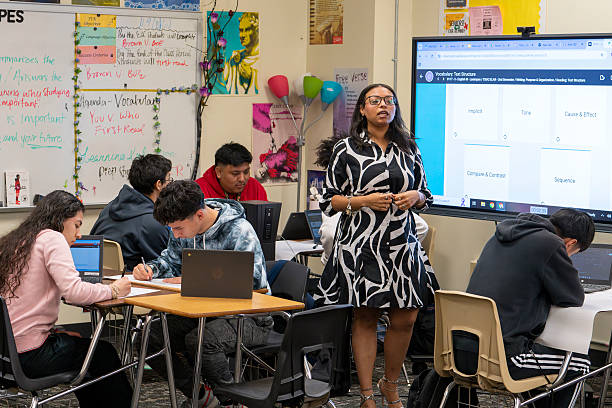School administrators often underestimate how scheduling decisions affect student outcomes. A thoughtfully designed timetable creates the foundation for academic success by establishing rhythm and predictability. Students thrive when they know what to expect each day. Research shows that consistent scheduling patterns help reduce anxiety and improve focus. The connection between organized time management and learning effectiveness becomes clear when schools implement strategic scheduling approaches.
Modern school master scheduler systems transform how educational institutions approach timetable creation. These platforms eliminate the chaos of manual scheduling while ensuring optimal resource allocation. Teachers receive balanced workloads, and students benefit from logical course progressions. The technology reduces conflicts and creates smoother transitions between classes. Schools using advanced scheduling tools report significant improvements in both staff satisfaction and student engagement levels.
Effective scheduling directly correlates with improved academic performance across multiple metrics. Students perform better when their daily routines support natural learning patterns. Morning classes often work best for core subjects when student attention peaks. Afternoon periods suit creative and physical activities. The strategic placement of demanding courses prevents mental fatigue. Schools that prioritize schedule optimization see measurable gains in test scores and graduation rates.
The Science Behind Strategic Scheduling
- Cognitive Load Management: Students process information more effectively when their schedules respect natural attention cycles. Research indicates that cognitive performance fluctuates throughout the day based on circadian rhythms. Strategic course placement maximizes these peak learning windows. Schools implementing science-based scheduling see dramatic improvements in comprehension rates. The timing of challenging subjects becomes as important as the content itself.
- Stress Reduction Through Structure: Predictable schedules reduce student anxiety and create psychological safety. When students know their daily routine, they can prepare mentally for each transition. This preparation leads to better classroom engagement and improved behavior. Teachers also benefit from reduced stress when schedules flow logically. The ripple effect touches every aspect of the educational environment.
Common Scheduling Mistakes That Hurt Performance
- Overloading Peak Hours: Many schools pack too many demanding courses into morning slots. This approach exhausts students before lunch and reduces afternoon learning effectiveness. Balanced distribution of challenging subjects throughout the day maintains student energy levels. Smart scheduling prevents the afternoon slump that plagues many educational institutions.
- Ignoring Teacher Preparation Needs: Insufficient planning time for educators directly impacts instruction quality. Teachers need adequate breaks between demanding classes to reset and prepare. Scheduling systems must account for professional collaboration time. The best academic outcomes emerge when both student and teacher needs receive equal consideration.
Implementation Strategies for Better Outcomes
Schools can improve their scheduling approach through several proven methods:
- Data-driven course placement based on student performance patterns and attention research
- Balanced teacher workloads that prevent burnout and maintain instruction quality
- Strategic elective positioning to provide mental breaks between core academic subjects
- Flexible block scheduling that accommodates different learning styles and pacing needs
- Regular schedule evaluation to identify problem areas and optimize student flow
Measuring Success Through Strategic Planning
Academic Performance Indicators: Schools with optimized schedules show consistent improvements in standardized test scores. Grade point averages increase when students experience less scheduling-related stress. Attendance rates improve as students find their days more manageable. These metrics provide clear evidence of scheduling impact on educational outcomes.
Strategic scheduling represents one of the most overlooked factors in academic success. Schools that invest time in thoughtful timetable design create environments where students naturally excel. The combination of science-based timing, balanced workloads, and systematic planning produces measurable improvements in educational outcomes. Take action today by evaluating your current scheduling practices and identifying areas for optimization that will benefit your entire school community.
Featured Image Source: https://media.gettyimages.com/id/2218085872/photo/houston-texas-hastings-high-school-english-teacher-nijah-lastrapes-gives-instructions-as-her.jpg?s=612×612&w=0&k=20&c=y-sphCH0MVbt__QBZuNAl5UFznkUIDBEvrrGloPRzaY=






